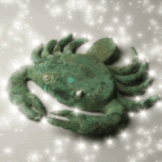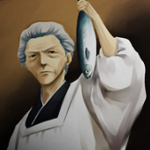|
ok ill do a somewhat serious post i guess plot contrivances happen in drafting a lot of the time. they happen because your just writing and get the words out there and that you probably had a plot in your head while you were writing. so then, with the idea that makes sense to you, you put it into the story, but it turns out, poo poo, that doesn't make sense at all. or, more likely, someone will read your story and be like, poo poo, that doesn't make sense at all. i find this happens a lot with either character inconsistency, as the reader has the idea for the plot and character (like they had a scene that they REALLY wanted to put in but it doesn't make sense because the character wouldnt do that thing), but the two don't gel together, or that the contrivances are put in place to basically transition from one idea to the other with little to no hassle. in that sense, contrivances are actually kind of good in drafting (if you make the mental note to go back and edit them so that they make better sense) so that you can get to the parts that are more interesting/revealing in your drafting that will probably be more important in your story overall. to fix a plot contrivance, usually (there are exceptions), it's not a case of cutting, but rather adding. when writing, a lot of times, your ideas are sound and work, but it's just that the unconscious links you had in your brain that made everything make sense to you are not put in the story (mostly because you didn't even notice that the links were necessary) so it doesn't make sense to your reader. in that case, the two best solutions are 1) stop working on that piece and come back to it in a couple weeks/months where you come in more fresh like a regular reader and 2) ask people to read your story and see where they get hangups. most of the time, when your reader says "i dont understand why this happened" or "huh, this was kind of weird," that's a contrivance that you can better explain to your reader. i find people have a good intuitive sense of logic and emotions (usually better than yours because your experience as the writer colors your interpretation of the story much more), so use them and listen to them.
|
|
|
|

|
| # ? May 15, 2024 05:30 |
|
Blue Star posted:How do you guys deal with plot contrivances? What counts as a contrivance? When I find one I ask, why? Do I need this to happen in some specific way? If so, I build up details earlier on so that it makes sense that it can happen that way. If I don't, then I remove it. To me, something that's contrived is something that happens in a blatantly artificial way, where I can see the author's hand moving things instead of the world and characters working on their own accord.
|
|
|
|
Yeah if something is happening because REASONS, go back and put the reasons in. I can't tell you how many stories I've had to go back and put motivations in for.
|
|
|
|
Uhhh. dear everyone: don't be like this guy quote:I actually overdosed on caffeine. I'm talking drop to the floor and then twitching, before rushed to the emergency room in an ambulance overdose. TWICE! All because I wanted to get good enough to be published for my fiction. I finally admitted after the second time I had no talent. That was when I flushed thirty years of trying. I just keep a religious blog now. e; also quote:Nothing like nicotine for piecing together those mental synopsis, is there. The curse of us who love to write.
|
|
|
|
|
|
|
|
Defenestration posted:Uhhh. dear everyone: don't be like this guy Maybe I have no integrity but I would be a hack and write the next Twilight if it was just that easy
|
|
|
|
HIJK posted:
Sitting Here posted:Maybe I have no integrity but
|
|
|
|
who is this guy because lol at how he thinks striving to improve is the reason for his addictive personality taking ctrl of his life
|
|
|
|
The addled addict of a writer trope only applies if the person has talent to begin with.
|
|
|
|
Weird, writing only turned me fat.
|
|
|
|
Also, how do people come up with good titles. This is one skill I am sorely lacking.
|
|
|
|
change my name posted:Also, how do people come up with good titles. This is one skill I am sorely lacking. Look up Chuck Tingle and use his seminal work as inspiration. But for us mere mortals, the easiest way is to take the general theme of a story and summarize it into three or fewer words, or give an ironic spin on the story's concept if it works in context. Also, most writers with addictions only get better after they kick said addictions, save for those rare cases where the writer's stream-of-consciousness rambling are the results of a drug or booze-fueled fugue state, and even then the writer has to be intensely talented to begin with in order for that to work. Screaming Idiot fucked around with this message at 00:43 on May 10, 2016 |
|
|
|
"hosed in the Butt by a Maple Tree"
|
|
|
|
"Slammed in the Ham by a Manly Man"
|
|
|
|
change my name posted:Also, how do people come up with good titles. This is one skill I am sorely lacking. I'm p good at titles. What I do is write the story, then see if there's a simple thesis statement that sort of sums it up, while not giving it away. If that's a good title then bam done. If not, i tweak it by changing it or removing a word or two to make it more ambiguous or suggestive. Ideally it means one thing before you read the story and a slightly different thing after you've finished.
|
|
|
|
I prefer to choose a title that's already been used TO DEATH. It's just the smart thing to do. ONE. THOUSAND. SEVEN HUNDRED. TWENTY. loving. TWO. 
|
|
|
|
I yell endlessly at the sky and the Internet then murder a child to get the title I want
|
|
|
|
Song titles are a good way to get the ball rolling. Just look at some random Spotify playlist and usually something will pop up.
|
|
|
|
"Pumped in the Rump by Forrest Gump"
|
|
|
|
I can only title other people's work.
|
|
|
|
Marshmallow Blue posted:How do you guys keep your stories within word-count limits. Aghh I have to cut out so many "good" (lovely) words, and I was blessed with 1300! Couple of tips for word limits: 1. Don't try to tell a story that's longer than your word limit. This sounds obvious, but like obvious things, it's easy to forget. Maybe you try to introduce a ton of characters, or you have too many scenes in the story, or maybe there's too many plot points for you to hit. (For the last reason, don't try writing mystery unless you've got a couple thousand words to play with.) Flash fiction works best with simplicity of focus. Some of my favorite Thunderdome stories could be summed up in a few sentences, like "A wizard casts a spell that reverses his gravity. He has to climb down from the ceiling of his tower to get the counterspell." It doesn't need to be that simple, but the summary of a flash fiction piece shouldn't be longer than a paragraph. 2. Don't write about what doesn't matter. Beginnings suffer the most from this. Our own Sebs Mojanks says you should cut the first 100 words of your story because it's all faff. My rule of thumb is to start when things get interesting. Don't start with a boring day, start when the boring day becomes no longer boring. Don't start with waking up, start when the UFO crash-lands into your car. When you go back through your story to edit (and you are editing, of course you are) cut out anything that doesn't improve the atmosphere or the plot. You don't have space for fluff; if it's not there to set the tone or make new things happen, cut it. 3. Move the plot along. Take a thousand-word story. After a hundred words, I should know who the main character is and what they want. After two/three hundred, I should know how they're going to try to get it. By five hundred, you should be in the middle of the main action and heading for the climax. Three-quarters of the way through is the sweet spot for the climax, if you ask me, and then the main character either succeeds or fails, and you resolve the story with the words you have left. That's just an example, and you could write a story that's completely different with a climax at the very end. The details aren't as important as keeping that immediacy in mind as you're writing. The tiny space you have to write in flash fiction makes pacing hugely important, or you'll have no room to actually finish your plot.
|
|
|
|
Djeser posted:Couple of tips for word limits: Thank you, this is very helpful. Especially 2 and 3.
|
|
|
|
No new characters after the first third, no new plot after the second third. And yeah, try cutting the first para and don't put it back unless the story doesn't make sense any more
|
|
|
|
I'm on my second book and I'm running here for advice on how to properly plot. I've tried writing this thing from scratch again about three times and each go around I manage to reach around 20,000 words before I start churning out stuff that happens but doesn't go anywhere. I've tried strictly plotting out the whole story from beginning to end before going at it but that doesn't work for me for various reasons, but neither do I think that complete boundless improvisation is quite working for me. I've started things again, fiddled with character motivations and slowed some progressing elements down to a more reasonable pacing and it seems to be going better, but I'll soon be at the previously deadly 20,000 word point and I'm worried it'll all start spooling out aimlessly again. Is there any advice people can offer? Thanks.
|
|
|
|
Deafnotdumb posted:I'm on my second book and I'm running here for advice on how to properly plot. People rarely take this advice...but DO NOT re-do your novel! You need to practice finishing a novel. I've written 350,000 words in the form of four novellas and four 50k-word novels since October while working a 40-hour/week day job. Each novel is like sculpting with clay. My first draft is mostly set, and it dries out and is no longer malleable after I finish. I go back over it to glaze/polish--or whatever pottery metaphor you want to imagine here--but I don't change it significantly. If you tear the thing in half and press it back together, it will explode in the kiln. When you start a brand new novel, you have all this fresh excitement and inspiration to tell a new story. When you finish a novel, you have the huge satisfaction of completing something you worked hard on...even if it's not the best novel and even if you know your next one will be better. When you re-do a novel, however, you are taking all the baggage of just having failed to write the novel back into a word count of zero. You have none of the excitement of a fresh start, and you have the full disappointment of not having completed--and just thrown out--everything you worked hard on. It's the worst of everything all in one place! Plotting is good and can help, but it's going to vary from person to person how much is actually helpful. I'm a big advocate of doing at least a 3-act or 4-act plan, with a rough summary of each act. It helps me A LOT to know my "plot point 1," "mid-point," and "plot point 2" in combination with these sketches of each act (look all this poo poo up if you have no idea what I'm talking about). Some people benefit a lot from have a scene-by-scene, but other people end up getting stressed out when what they are writing slowly de-synchs with their outline. I'd experiment as you write and as you FINISH NOVELS. As you FINISH NOVELS, you will gain experience and figure out what kind of plotting/outlining process works best for you. Other advice to help you FINISH NOVELS is to aim for 50-60,000 words. Depending on your genre, this may be too short to have a great shot at a nice traditional publishing contract, but it's a much better shot than a 200,000-word incomplete piece of poo poo on your C:\ drive which reads "Last opened on August 12, 2014." If you go for 50,000 words, and if you write 3,000 words per day five days per week, you can finish the novel in under a month. If you are reading this, ask yourself a few questions: 1) How long have I been writing? 2) How many words have I written in my life? 3) How many novels have I FINISHED? Take the answer to number 2 and divide it by 50,000, that's how many novels you could have finished. If your answer to number 1) is longer than one year, and your answer to number 3) is "zero," and if you actually are interested in FINISHING NOVELS rather than just doing short stories, then what the gently caress are you doing? Why do you not have a finished novel? Can you not write 3,000 words per day with breaks on weekends? What about 1,500? Either one will give you a full novel in under two months. Are you worried your novel is going to suck, so you have to continually restart it to make sure it won't suck? Actually, 99% chance it's going to suck no matter what, so get your first lovely novel FINISHED as soon as possible so that you are deeper down the path of writing one that isn't lovely. Do you think it's smarter to spend a year trying to beat the odds and have a good first novel by doing endless re-writes? Or is it smarter to spend a year writing twelve novels? How much better do you think your 12th novel will be than your first one? angel opportunity fucked around with this message at 20:47 on May 19, 2016 |
|
|
|
Deafnotdumb posted:I'm on my second book and I'm running here for advice on how to properly plot. angel opportunity's advice is great (though I don't know if you could really sell a 50k novel, but I'm not very widely experienced). But also here is a completely bare bones structural outline. Try forcing yourself to stick to this. 90,000 words. Divide into 3 acts of 30k each. Divide each act into 10 chapters of 3k each. Write 4x700 or 3x1000 word scenes per chapter. In each chapter, spend the first scene setting up a conflict, the second scene blowing it up (people argue, people kiss, people make a decision, people ignore a decision, whatever), and the third scene exploring the consequences and feeding forward those consequences to the next chapter. In each act, spend 5 chapters building up tension, 3 chapters detonating that tension, and 2 chapters setting up the consequences of that detonation for the next act. The 'solution' at the end of each act should create the problem at the start of the next act. This is not the be-all end-all universal plot formula. It is a very easy, archetypical plot structure that you can follow if you're having structural problems.
|
|
|
|
This advice is all really solid, but it does leave me with a question: do you not do second drafts? It sounds like you finish a first draft, give it the glaze/polish treatment, then move on to something new. Which is a rad way of churning out material, don't get me wrong, but I feel like it would take a lot more than just a first draft and a polish to actually get anything published unless you A) plotted really well, or B) are naturally talented at stringing a story along on the first go. I ask because 2nd drafts have consistently proven to be my downfall. 1st drafts? No problem; I've got 5 "finished" novels by that metric. It's the post-1st draft part that always ruins my party. So what do you do when you love and/or believe in a story enough to want to get it published, but know that getting it published would require some significant overhauling of the plot? I also recognize this may be impossible to answer if getting work published isn't on your agenda, which hey, nothing wrong with that.
|
|
|
|
There is some decent advice in here. To wit, I have a postcard on my wall that says "An artist is someone who finishes things" But there's also some real NaNoWriMo churn poo poo. Yes practice is important. Yes finishing is important. Will any given writer get good just by churning out pages and not by thinking hard about their novel and how it could be better? No.
|
|
|
|
Define 2nd draft. If you absolutely can't do a 2nd draft, hire an editor to fix your poo poo and call it a day.
|
|
|
|
Cpt. Mahatma Gandhi posted:This advice is all really solid, but it does leave me with a question: do you not do second drafts? It sounds like you finish a first draft, give it the glaze/polish treatment, then move on to something new. Which is a rad way of churning out material, don't get me wrong, but I feel like it would take a lot more than just a first draft and a polish to actually get anything published unless you A) plotted really well, or B) are naturally talented at stringing a story along on the first go. He self-pubs, which runs by somewhat different rules than trad pub and is a dying market anyway.
|
|
|
|
General Battuta posted:angel opportunity's advice is great (though I don't know if you could really sell a 50k novel, but I'm not very widely experienced). But also here is a completely bare bones structural outline. Try forcing yourself to stick to this. I found this funny because I'm reading The Department of Speculation right now. For those of you who haven't read it, every paragraph is a self-contained short story and the main plot sort of drifts around. The chapters don't really delineate anything. It's 200 pages, but still very short because of the spacing and margins and large font. Of course, Offill already knew how to write a book before she tried to branch out into something different. it's also really good
|
|
|
|
I guess my advice is just "keep writing and editing your lovely books until you can accept that they're bad. Then write better ones using what you've learned".
|
|
|
|
Yes, I self-pub ROMANCE also, so full disclosure here! Are you saying trad pub is dying or self-pub is dying? I don't think either one is actually dying... Anyway, 50k for a novel is like super dead minimum, and in some genres it probably doesn't even count. As Battuta said, if you are trying to sell your fantasy epic to Tor and it's 50,000 words...good luck with that. The main point though is that writing around 50k words is helping you practice FINISHING NOVELS. It's better to finish two 50,000-word novels than to spend a year and a half doing seven drafts of a 100,000-word novel and never finishing. Also, if you have written 2-3 50k-word novels, writing a 200k-word novel is just a larger scale with the same skillset, whereas going from a 10k-word short to a novel is quite different. It's pretty hard to get too deep into advice without talking about actual publishing advice, but I really do think that in MOST CASES it's really bad to sit there and do multiple drafts over and over when you could be FINISHING NOVELS. I'm not advocating some kind of NaNoWriMo approach, by the way, where you poo poo out 12 messy pieces of garbage per year with no care for quality. There's a balance between getting out a good, polished product and finishing in a reasonable amount of time. I think most writers lean way too heavily away from "reasonable amount of time," telling themselves that the product must be absolutely perfect. What tends to happen when you re-draft too much--and I've had this happen especially with non-romance short stories that I have tried to trad pub--is that you have some good concept in your head and you let it stew, then you plot it, then you write it down. The first draft is usually pretty solid. It's like 80-90% as good as it will get. Now you have a draft that is almost there, and what do you do? Do you polish it up and make it as good as you can get it, then submit it for publication (or self-pub it)? OR do you send it to 3-4 beta readers who all nitpick the poo poo out of it, and then you redraft it with all those nitpicks in your head, and it loses a lot of what originally made it good? Do you decide to change it from third to first-person, or from past to present tense? The longer the thing you are redrafting is, the more errors will seep into the piece as you endlessly redraft it. It will lose a lot of flow and a lot of what originally made it good in the first place. If you tweak the plot around in some places, you more or less need to re-comb the whole piece looking for ripple effects from that change. You can get stuck in a quagmire of endless redrafts, and the final product of all this usually will not end up being better than the first draft...and often it will be even worse. The self-pub romance stuff I do, you basically need at least a 50,000-word novel out every single month. I actually am doing well enough at it that I quit my job and am going full-time writing in July, with the goal of doing 100,000 published words per month. Romance definitely has a lower bar for quality and a higher tolerance for flimsy plots, so my "one polishing pass" approach is probably too extreme for anyone looking for a trad. pub contract. However, your writing is going to improve so much as you FINISH NOVELS, and I think there's some serious merit to popping stuff out fast and finishing it. Maybe look around in your genre and find the absolute shortest thing that will sell, and aim to finish it in the absolute shortest amount of time you possibly can...within reason. Depending on your life circumstances (do you have kids? do you work more than 40 hours per day at day job?) you can carve out variable time to write...but if you really want to do this, you should be able to do AT LEAST 1,000 words per day or 5,000 words per week. And that should leave you with a FINISHED NOVEL in the span of a few months. Most of the full-time authors I know do 5-6k words per day, and I have been aiming at 2-4k per day while I am still working a day job. This isn't NaNoWriMo level spewing out lovely garbage just to call it a novel, it's making sure that you train yourself to write fast and produce consistently, and to try to make sure your initial draft is very high quality so that you don't get stuck in a re-drafting or restarting swamp.
|
|
|
|
You should finish books because a) getting over the hump from 'wow what a great premise!' to 'oh god how do i story' is super hard, and b) pulling all the threads together and converging all the choices and making an end is EVEN HARDER, and you won't practice either of these things if you're drafting your first 15k over and over. That wall you crash into where you say 'hm I need to restart' is a lot easier to explore and learn from the other side. On the other hand, man, I do not think holding yourself to 5k a week or 6k a day will work out...I know some authors manage it, but everyone's different, and some days you're off, some days you've got to spend tweaking and planning, it's not all good times in the word mines. I can do 10k on a good day but some days I just can't get poo poo done. (I am, to be fair, a disastrous failure at meeting deadlines on my second book, but not because I haven't made word counts! I have done 770,000 words across various drafts so far  .) .)
|
|
|
|
General Battuta posted:You should finish books because a) getting over the hump from 'wow what a great premise!' to 'oh god how do i story' is super hard, and b) pulling all the threads together and converging all the choices and making an end is EVEN HARDER, and you won't practice either of these things if you're drafting your first 15k over and over. In my experience, holding yourself to a wordcount is only useful when you pair it with a certain amount of narrative progress. For example, today my goal is to write 1300 words, and my goal for those 1300 is to have a specific character enter the scene and deliver a specific piece of information to the protagonist. If I write those 1300 words and I haven't even gotten the delivery character through the door, then something went wrong along the way. Sometimes it does feel good to just meander, but I usually open up side files to do that. It helps me hit a quota for the day without feeling like I'm screwing progress in a working novel.
|
|
|
|
Oxxidation posted:He self-pubs, which runs by somewhat different rules than trad pub and is a dying market anyway. Yeah I'm also curious about whether you're referring to the death of self publishing or traditional publishing (although to be honest I'm probably going to  either way). either way).
|
|
|
|
Trustworthy posted:Yeah I'm also curious about whether you're referring to the death of self publishing or traditional publishing (although to be honest I'm probably going to Selfpub just got hit hard by an Amazon royalty nerf, I'd guess it's that.
|
|
|
|
Is there a thread on publishing/getting paid for fiction? I'd like to know more.
|
|
|
|
Yep, grizzled patriarch just started one in cc. E: idk then maybe everything is peachy? Vv sebmojo fucked around with this message at 22:34 on May 20, 2016 |
|
|
|

|
| # ? May 15, 2024 05:30 |
|
sebmojo posted:Selfpub just got hit hard by an Amazon royalty nerf, I'd guess it's that. Short fiction in KU, 99.9% of which was the second (third?) wave erotica goldrush, got nerfed by Amazon like half a year ago. Smart writers, readers, and the industry at large have since adjusted. I'd hardly equate that kind of necessary growing pain (largely confined to a single genre) to "self publishing going down the toilet." Trustworthy fucked around with this message at 22:45 on May 20, 2016 |
|
|






















